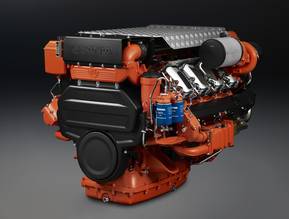Growing armada shipping approved oil burns dirty fuel in an obstacle for clean-up efforts
The growing shadow fleet of tankers transferring approved Iranian, Venezuelan and Russian oil is filling up with the most affordable fuel readily available, preventing market efforts to utilize cleaner fuel to cut shipping emissions, according to delivering information and sources.
The international shipping industry is under increasing pressure to use cleaner fuel to reduce both carbon and sulphur dioxide emissions and other toxins and satisfy more comprehensive green targets.
Numerous tankers that are transferring approved oil are posturing a challenge because they are hard to track due to the fact that of their nontransparent ownership and usage of non-Western insurance coverage and other marine services, and they have little reward to follow cleaner shipping requirements.
You're seeing higher numbers of ships that have found methods to prevent sanctions by running outside Western jurisdiction, stated Michelle Wiese Bockmann, principal analyst with maritime information group Lloyd's List Intelligence.
The dark fleet has gone on steroids. And the misleading delivering practices that they're taking part in are getting more and more complex and advanced.
Those include unsafe ship-to-ship transfers of oil in worldwide waters to avoid port state control analysis, falsifying ship recognition numbers, tankers sending out false info about their position, and making use of flag windows registries with lower requirements of technical oversight and proficiency, Bockmann said.
Lloyd's List Intelligence approximates the shadow fleet had grown to around 630 tankers from 530 a year earlier, to make up 14.5% of the overall worldwide tanker fleet.
Some industry approximates put the number even greater, at over 800 tankers.
The numbers mark more quick expansion following Moscow's. intrusion of Ukraine in 2022 and Western curbs on Russian energy. exports, which has led to ships being struck with sanctions.
Before the war, the shadow tanker fleet amounted to around. 280-300 vessels, according to Lloyd's List Intelligence.
Such development has raised concerns about its environmental. impact as well as security and the effectiveness of sanctions,. consisting of a Western restriction on delivery and trading of Russian oil. priced above a $60 per barrel limitation.
Under the so-called IMO 2020 convention adopted by the. United Nations' International Maritime Company (IMO), ships. have to change to low sulphur fuel from the greater sulphur fuel. diesel the industry has utilized for decades.
NO 'SCRUBBERS'
Enforcement of these regulations developed to lower emissions. depends on IMO member nations, which can impose fines or apprehend. ships for non-compliance. In April, the IMO contacted its. members to increase evaluations on vessels considered to be shadow. ships and strengthen fines for any irregularities.
The IMO guidelines say ships can just burn high sulphur fuel if. they have exhaust gas cleaning systems, known as scrubbers.
Shadow fleet tankers, nevertheless, can run on greater sulphur. diesel - that is estimated to cost 20% less than the greener. fuel - without checks unless they are stopped at ports imposing. the guidelines, individuals familiar with the matter said.
A lot of shadow vessels have no scrubbers but they purchase high. sulphur fuel oil when they are in Russia, one industry source. said. So, they are breaching the IMO's sulphur limit.
It is difficult to gauge the degree of non-compliance with. IMO 2020 across the shadow fleet, but there has been a rise in. cases of ships apprehended because of sulphur-related breaches.
Port authorities in Europe and Asia apprehended at least 10. ships in the first five months of 2024 in connection with the. convention, up from 6 in the very same duration in 2015 and five. for the whole of 2022, according to Reuters analysis based upon. information from port enforcement authorities. Of the 10 tankers. detained, 9 had actually made previous calls to Russia.
RUSSIAN, IRANIAN FUEL SUPPLIES
Russia and its partners in the Eurasian Economic Union,. that includes Kazakhstan, Kyrgyzstan, Armenia and Belarus. concurred in December they would continue utilizing high sulphur fuel. until completion of 2026.
This means that ships can still get high sulphur fuel at. ports servicing those countries, individuals associated with the fuel. shipping trade state.
Iran, another producer of high sulphur fuel, has actually supplied. ships in the Middle East Gulf, the sources say.
In one such operation, the Casinova tanker filled such fuel. at Iran's Bandar Imam Khomeini port in current months, stated. Claire Jungman, chief of personnel at U.S. advocacy group United. Versus Nuclear Iran, which tracks Iran-related tanker traffic. via satellite information. The Casinova later on moved some of the. fuel onto smaller ships waiting around the Basra Anchorage in. southern Iraq, Jungman said.
The vessel's Liberia based owner Le Monde Marine Providers. might not be grabbed remark.
Casinova's ship insurance provider West P&I said it remained in the procedure. of cancelling the vessel's coverage after Reuters asked for. comment.
Ship certifier ABS, which has offered security cover for the. Casinova, was examining its activity, a representative for the. U.S.-headquartered business said.
ABS treats every accusation and the subject of sanctions. extremely seriously, the representative stated. We stay committed to. compliance with U.S. and UN sanctions regimes and all other. relevant laws..






